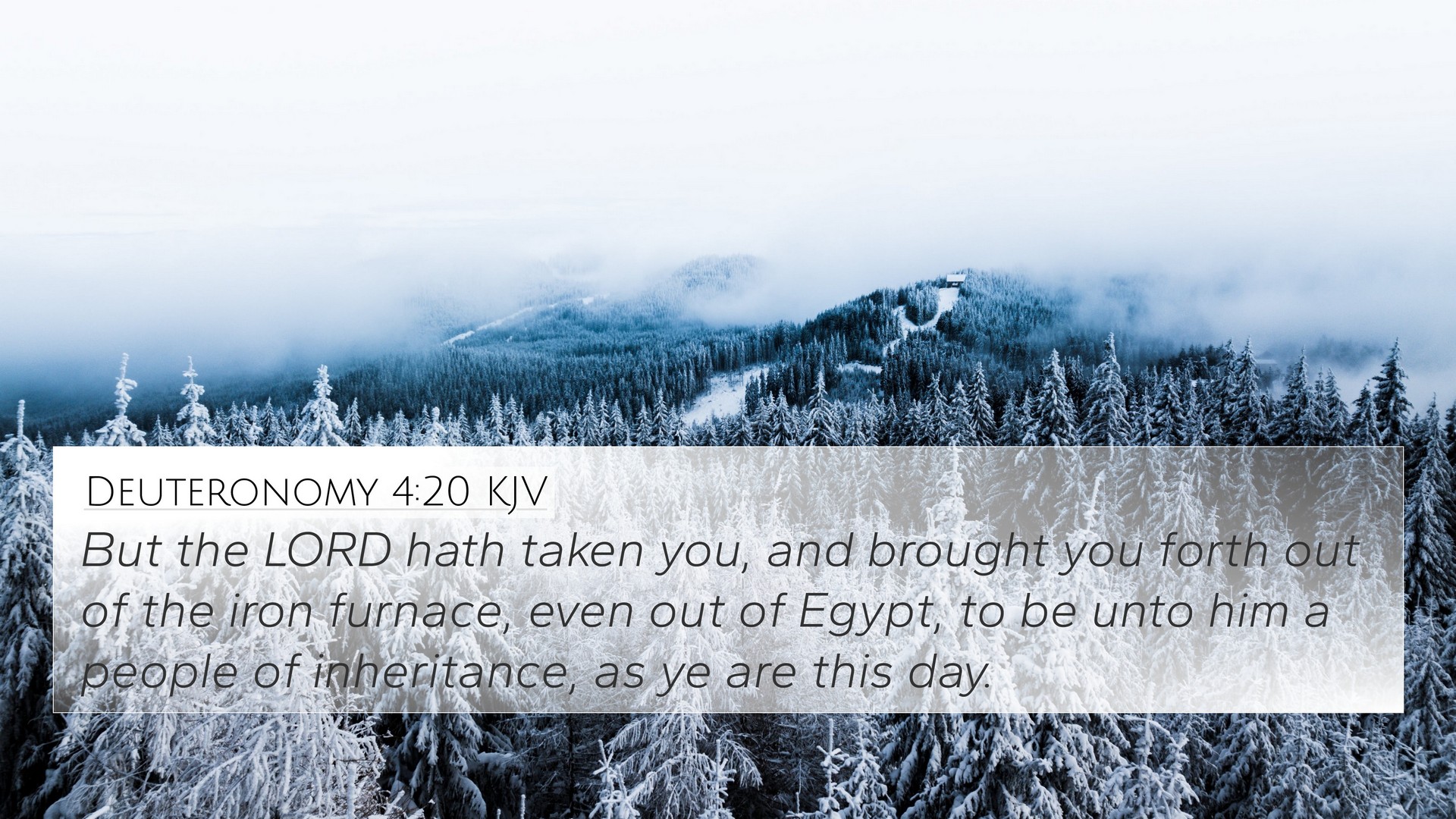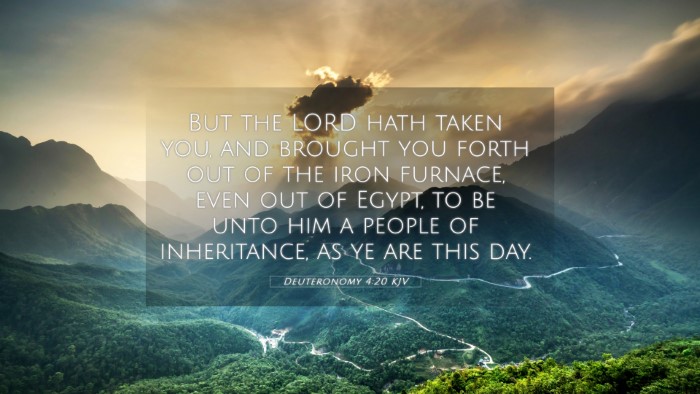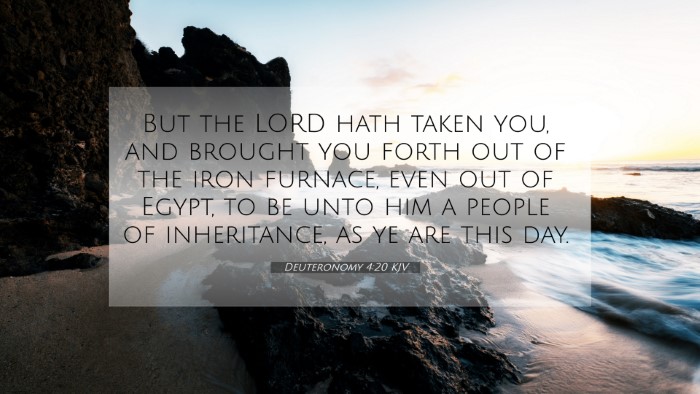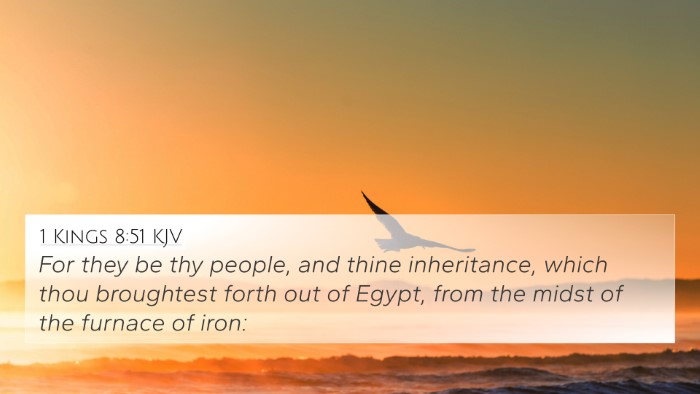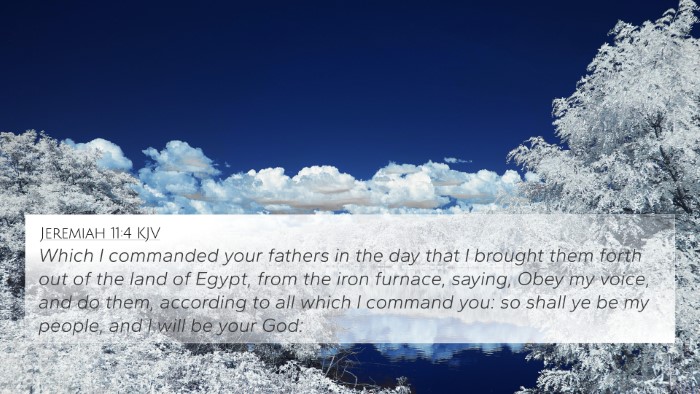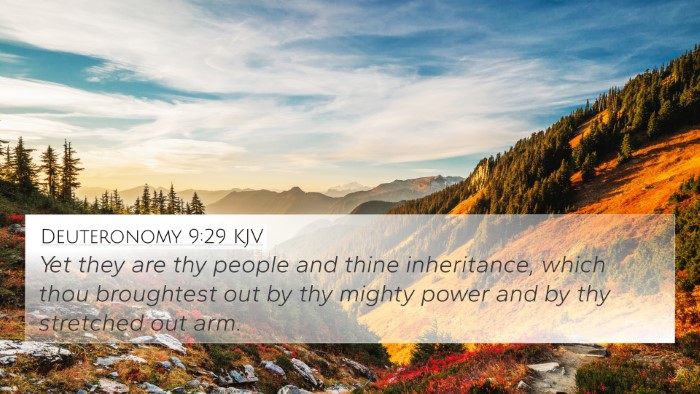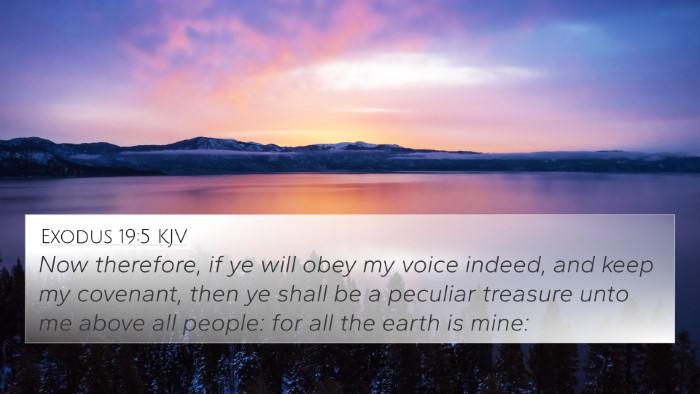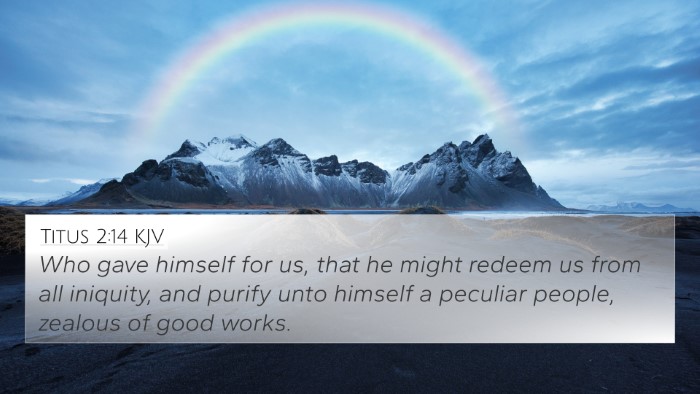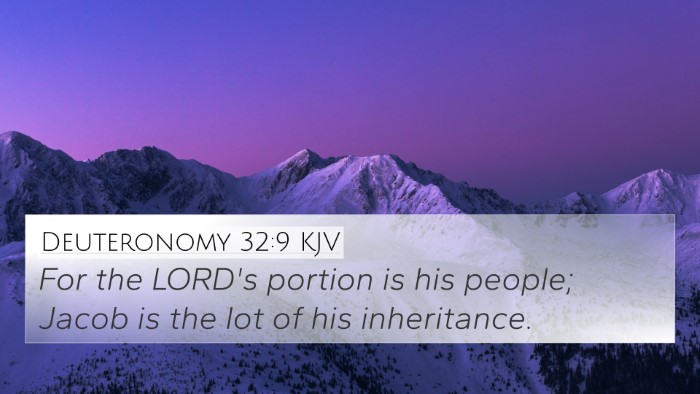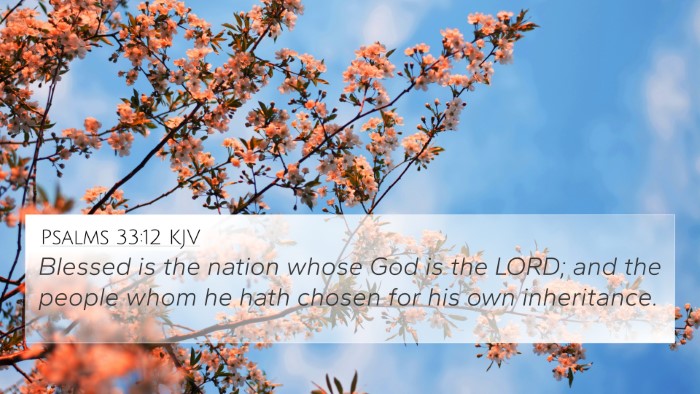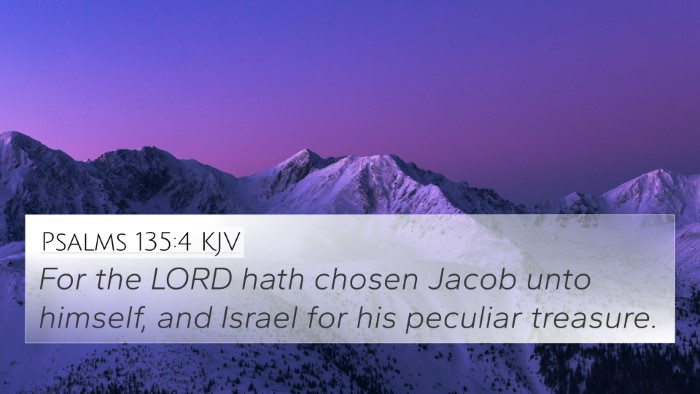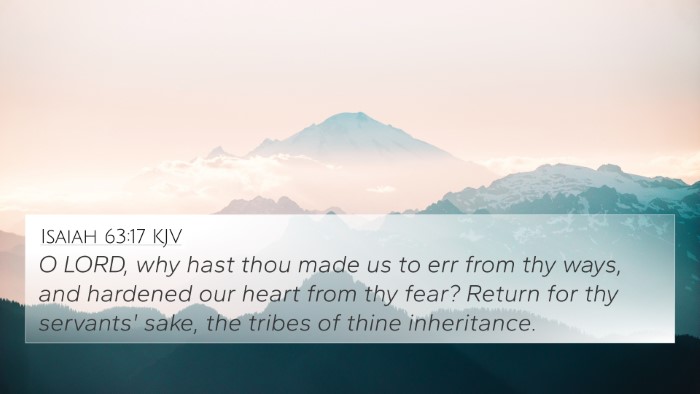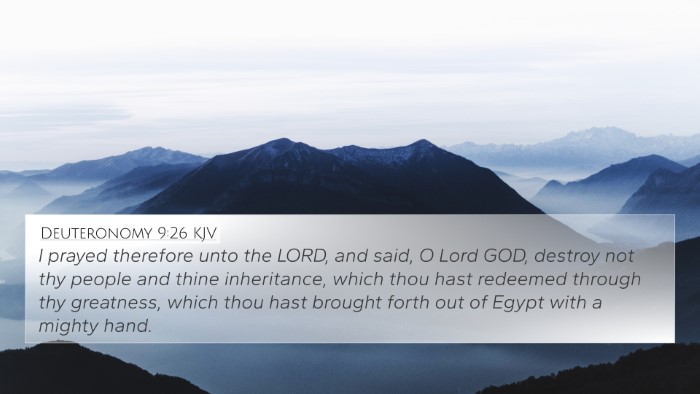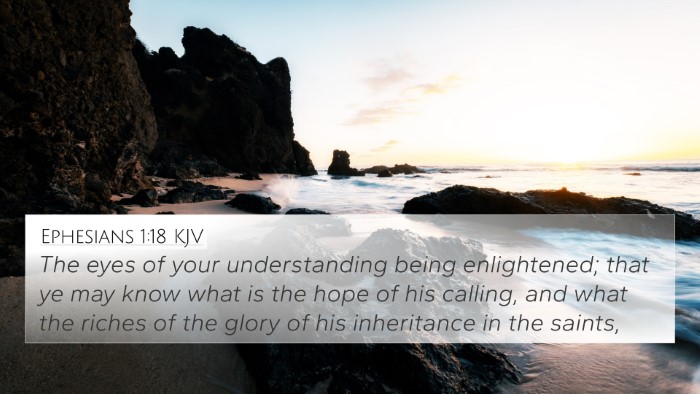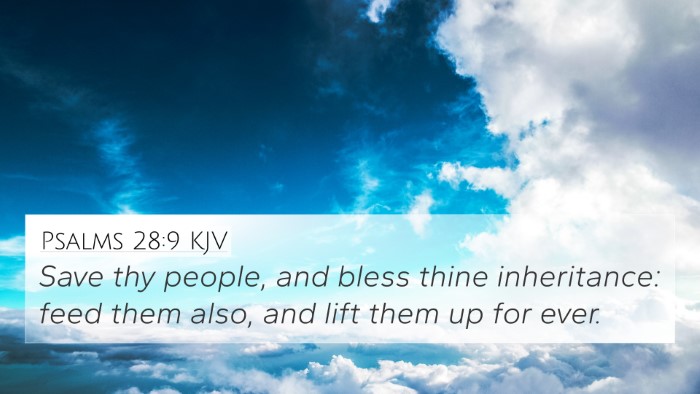Understanding Deuteronomy 4:20
Bible Verse: Deuteronomy 4:20 states, “But the Lord has taken you and brought you out of the iron furnace, out of Egypt, to be unto him a people of inheritance, as you are this day.”
This verse encapsulates a significant declaration of God's deliverance and purpose for His people, Israel. It is crucial to explore the meaning and implication drawn from various public domain commentaries, including those contributed by Matthew Henry, Albert Barnes, and Adam Clarke.
Summary of Insights from Commentaries
Matthew Henry's Commentary
Henry emphasizes the drastic transformation experienced by the Israelites. The "iron furnace" symbolizes their severe afflictions in Egypt. He notes that God's intervention was fundamental in transitioning them from oppression to identity.
- Symbolism of Egypt: Represents sin and bondage.
- Divine Purpose: God intends for His people to be a distinct inheritance.
- Historical Context: The reminders of slavery serve to reinforce their covenant relationship with God.
Albert Barnes' Notes
Barnes articulates the analogy of the "iron furnace" as it reflects the harshness of Egyptian slavery. He highlights the overarching theme of redemption, where God not only rescues but also establishes the Israelites as His own people.
- Redemptive Act: Suggests a transfer from slavery to sonship.
- Covenantal Relationship: The act of selection by God affirms His commitment to a people He loves.
- Historical Memory: Encouragement for subsequent generations to remember God’s saving acts.
Adam Clarke's Commentary
Clarke provides an in-depth analysis of the phrase "iron furnace," interpreting it as a metaphor for intense suffering and hardship. He elucidates that this deliverance was not just physical but brought with it a spiritual calling towards holiness and service to God.
- Moral Implication: The deliverance places a spiritual responsibility on the people.
- Purpose of Election: Causing them to become a holy nation, specifically chosen by God.
- Continuity of Promise: Links their historical journey to God’s ongoing plan for redemption.
Cross-References
The message of Deuteronomy 4:20 is richly supported by numerous Bible verses that reinforce the themes of deliverance, identity, and covenant. Here are several notable cross-references:
- Exodus 3:8: "So I have come down to rescue them from the hand of the Egyptians..." - God's promise of deliverance.
- Isaiah 43:2: "When you pass through the waters, I will be with you..." - Assurance of God's presence in trials.
- 2 Corinthians 6:17: "Come out from them and be separate..." - A call for holiness linked to identification with God.
- Romans 8:15: "For you did not receive a spirit of bondage again to fear..." - Transition from slavery to sonship.
- Colossians 1:13: "He has delivered us from the power of darkness..." - Reaffirmation of deliverance in the New Testament context.
- 1 Peter 2:9: "But you are a chosen generation..." - Establishing believers as a chosen people.
- Jeremiah 11:4: "The covenant which I made with your fathers..." - Reminder of God's enduring covenant.
- Galatians 4:7: "Therefore you are no longer a slave, but a son..." – Emphasizing the shift in status from slave to heir.
- Hebrews 11:29: "By faith they passed through the Red Sea..." - Reflecting on the act of deliverance and faith.
- Psalms 105:43: "And He brought forth His people with joy..." - Celebrating God’s redemptive acts.
Thematic Connections
Analyzing Deuteronomy 4:20 through the lens of cross-references reveals profound themes in Scripture. The thematic elements include:
- Redemption and Deliverance: Highlighted across both the Old and New Testament, emphasizing God’s ongoing work in history.
- Covenant Identity: The idea of being God’s chosen people interweaves throughout the biblical narrative.
- Call to Holiness: Reflecting on how God's deliverance demands a response of living a holy life.
Conclusion
Deuteronomy 4:20 serves as a vital reminder of God's saving grace and the identity bestowed upon His people. The interconnectedness of this verse with other Scriptures highlights the biblical motif of redemption and covenant. By understanding this verse through a comparative analysis with other relevant Scriptures and commentaries, believers can appreciate the depth and richness embedded in the biblical text.
Utilizing tools for Bible cross-referencing can immensely enhance one’s study of Scripture. Through Bible concordance and a Bible cross-reference guide, individuals can navigate the connections between Bible verses effectively, deepening their understanding of Bible verse interpretations and the inter-Biblical dialogue.
